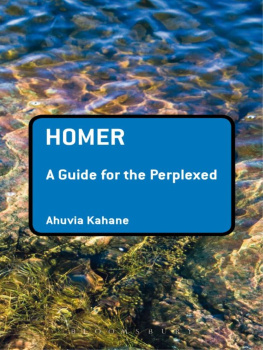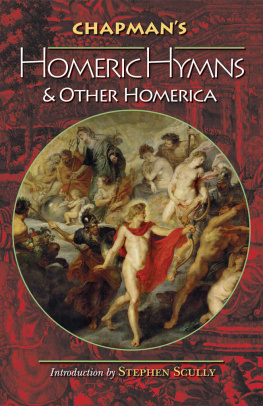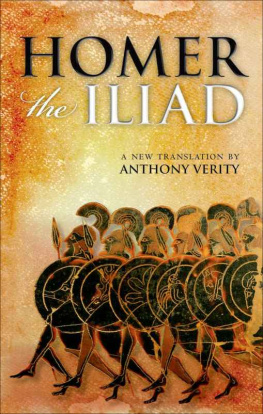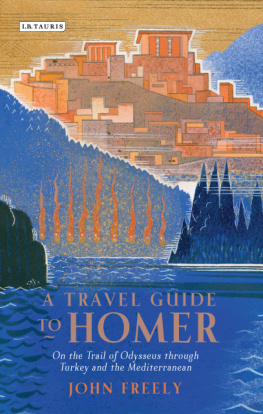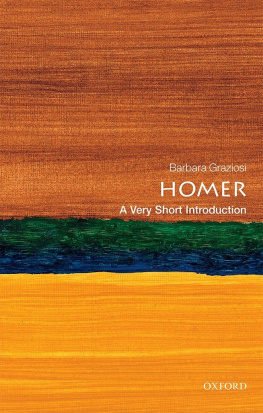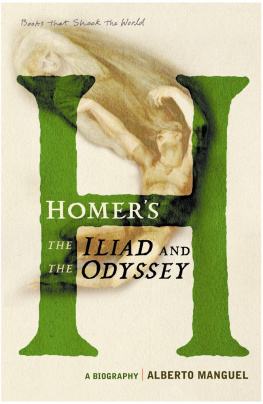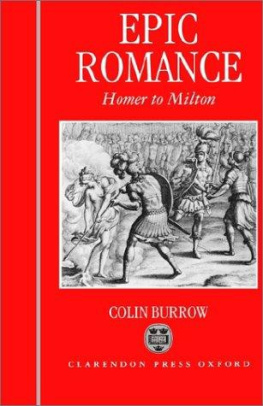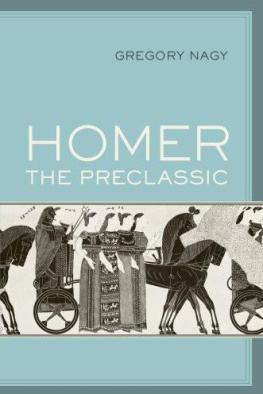Homer
A Beginners Guide
Interesting, thoughtful, and well written. The book covers an admirably wide range of issues with clarity and assurance.
Barbara Graziosi, Professor of Classics, Durham University, UK
Barker and Christensen have written the best introduction I know to the Homeric poems. They explain the main themes, scenes, and characters in clear, jargon-free language that is a pleasure to read, whether for those new to Homer or advanced students.
Pura Nieto, Senior Lecturer in Classics, Brown University, USA
ONEWORLD BEGINNERS GUIDES combine an original, inventive, and engaging approach with expert analysis on subjects ranging from art and history to religion and politics, and everything in between. Innovative and affordable, books in the series are perfect for anyone curious about the way the world works and the big ideas of our time.
aesthetics
africa
american politics
anarchism
animal behaviour
anthropology
anti-capitalism
aquinas
art
artificial intelligence
the bahai faith
the beat generation
the bible
biodiversity
bioterror & biowarfare
the brain
british politics
the Buddha
cancer
censorship
christianity
civil liberties
classical music
climate change
cloning
cold war
conservation
crimes against humanity
criminal psychology
critical thinking
daoism
democracy
descartes
dewey
dyslexia
energy
the enlightenment
engineering
epistemology
european union
evolution
evolutionary psychology
existentialism
fair trade
feminism
forensic science
french literature
french revolution
genetics
global terrorism
hinduism
history of science
homer
humanism
huxley
iran
islamic philosophy
islamic veil
journalism
judaism
lacan
life in the universe
literary theory
machiavelli
mafia & organized crime
magic
marx
medieval philosophy
middle east
modern slavery
NATO
nietzsche
the northern ireland conflict
nutrition
oil
opera
the palestineisraeli conflict
particle physics
paul
philosophy
philosophy of mind
philosophy of religion
philosophy of science
planet earth
postmodernism
psychology
quantum physics
the quran
racism
reductionism
religion
renaissance art
shakespeare
the small arms trade
sufism
the torah
united nations
volcanoes


A Oneworld Book
Published by Oneworld Publications 2013
Copyright Barker and Christensen 2013
The moral right of Barker and Christensen to be identified as the Authors of this work has been asserted by them in accordance with the Copyright, Designs and Patents Act 1988
All rights reserved
Copyright under Berne Convention
A CIP record for this title is available from the British Library
ISBN 978-1-78074-229-8
ISBN (ebook) 978-1-78074-238-0
Typeset by Cenveo, India
Printed and bound in Great Britain by
TJ International Ltd, Cornwall
Oneworld Publications
10 Bloomsbury Street
London WC1B 3SR
UK
Stay up to date with the latest books, special offers, and exclusive content from Oneworld with our monthly newsletter
Sign up on our website
www.oneworld-publications.com
List of illustrations
Acknowledgements
There is no greater privilege for us than the chance to write a Beginners Guide on Homer for a general audience. We would like to thank all the team at Oneworld Publications for giving us the opportunity, Mike Harpley, our series editor, who guided us through the edit of this little book on big issues, and Barbara Graziosi, from whose Homeric wisdom and skill we have learned much. Many other scholars have informed our understanding of Homer and his poems. We have tried to give some indication of our formative influences in Further Reading at the end of the book. But for the record we would like to acknowledge Erwin Cook, Simon Goldhill, Bruce Heiden, and Lenny Muellner, whose lectures brought Homer alive for us and whose ideas may be found throughout this book. We thank too our students, both past and present, whose undiminished curiosity has kept Homer vibrant year after year. We are also indebted to the friends and colleagues who read through earlier drafts of the manuscript and spared us many blushes: Timothy Gerolami, Kristina Meinking, Alex Purves, and Sophie Raudnitz. Any nodding is ours.
Finally, we would like to thank our partners Kyriaki and Shanaaz for putting up with our affair, the late nights home from the office, the surreptitious checking of email at all hours, and the obsessive recounting of memories (those borrowed as well as our own). This book is dedicated to them, to our families, and to Homers people everywhere suffering many pains because of the incompetency and greed of their leaders and the capriciousness of the gods who rule our world.
Elton Barker
Reader in Classical Studies at The Open University and Research Fellow of the Alexander von Humboldt Foundation
Joel Christensen
Assistant Professor of Classics, University of Texas at San Antonio
A note on the text
We have translated Homers words ourselves in order to help emphasise certain themes and ideas. But always near to hand are Richmond Lattimores translations of the Iliad and the Odyssey (the former reissued in 2011 with an introduction by Richard Martin). While there are many fine and more up-to-date editions of both epics, Lattimores translations match up with Homers poems line-by-line and preserve the repetitions and special diction that are both characteristic of them and essential to their interpretation. It is important also to note that the names in Homers epics have undergone many transformations from one language to another. In general, we have kept the more popular romanised and anglicised versions: hence Achilles for Akhilleus, Achaeans for Akhaians, Hecuba for Hekabe, etc. From time to time, a particular concept (highlighted in bold) has needed further elucidation: for this, we have used text boxes in order not to interrupt the flow of our story.
Introduction
O Homer, where art thou?
Beginning with Homer
The classical world begins with Homer. The ancient Greeks famously didnt have a sacred text like the Bible or the Quran. But they did have Homer. Homer, by some accounts, provided the origins of not only their literature, but also their religious, cultural, and political lives. Poets and scientists from the islands and mainland; Athenian tragedians, comic playwrights, and vase painters; Sicilian rhetoricians and temple-builders; politicians of all stripes and philosophers from every school all these vastly different groups demonstrate intimate familiarity with Homer. Indeed, for disparate communities spread out across the Mediterranean from Massalia (Marseilles) in the west to Cyrene on the North African coast and the Black Sea in the east, Homer provided the glue for what we now call ancient Greek civilisation. The first-century AD Roman historian of rhetoric, Quintilian, likens Homer to the river Oceanus that the ancients thought encircled the world. Everything flows from Homer and back into him.


